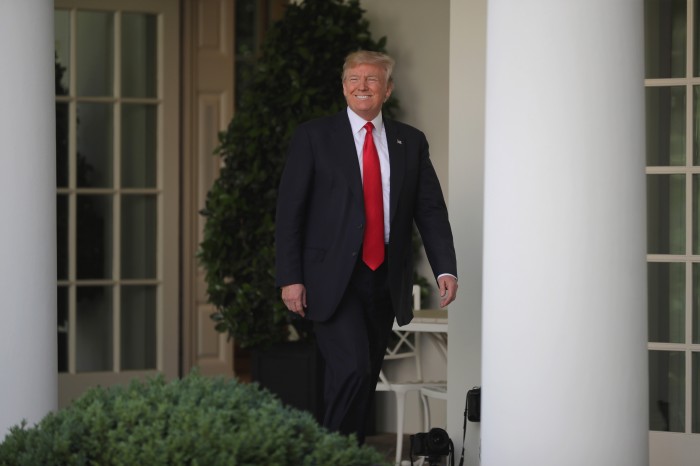Exiting Paris, Trump Cedes Global Leadership on Climate Change

As expected, President Donald Trump announced on Thursday that the United States will exit the landmark Paris climate agreement, arguing it undermined the nation’s economic growth, and international competitiveness.
Many energy and climate experts, however, say the decision will damage the nation’s relationship with key allies and trading partners, and cede economic opportunities in clean energy to other nations, most notably China, as we previously reported (see “Exiting Paris Climate Accords Would Exact a Steep Global Cost”).
The withdrawal of the world’s second-largest emitter of greenhouse gases could also weaken the accord, as other nations rethink their commitments—particularly the developing countries that contributed little to the growing problem of climate change.
During an afternoon press conference in the White House Rose Garden, President Trump said he planned to renegotiate the deal or strike a new one “on terms that are fair to the United States, its businesses, its workers, its people, [and] its taxpayers.” He specified that the nation wouldn’t follow through on billions of dollars in additional commitments to the Green Climate Fund, set up to help poor nations transition to clean energy sources.
A number of U.S. leaders immediately criticized the move, and disputed Trump’s economic rationale.
“The nations that remain in the Paris Agreement will be the nations that reap the benefit in jobs and industries created,” said President Barack Obama, an architect of the hard-won deal, in a statement. “But even in the absence of American leadership; even as this Administration joins a small handful of nations that reject the future; I’m confident that our states, cities, and businesses will step up and do even more to lead the way.”
Indeed, in response to the move the governors of California, New York and Washington announced the formation of the United States Climate Alliance, a coalition of states committed to the meeting the Paris emissions pledges. The three states account for more than one-fifth of U.S. gross domestic product, and 10 percent of the nation’s emissions. “If the President is going to be AWOL in this profoundly important human endeavor, then California and other states will step up,” California Governor Jerry Brown said in a statement.
Some in the private sector also denounced the decision, notably including Goldman Sachs leader Lloyd Blankfein and Tesla Chief Executive Elon Musk, who said he was stepping down from President Trump's business council as a result. “Climate change is real,” he wrote on Twitter. “Leaving Paris is not good for America or the world.”
Under the deal, the United States had agreed to cut greenhouse gas emissions as much as 28 percent below 2005 levels by 2025.
Officially, it will take three years for the country to fully exit the agreement, but the Trump administration has already pursued a series of policy rollbacks and budget proposals that would ensure the nation can't meet the largely non-binding commitments (see "How Much Damage Could Scott Pruitt Really Do at EPA?").
Keep Reading
Most Popular
Large language models can do jaw-dropping things. But nobody knows exactly why.
And that's a problem. Figuring it out is one of the biggest scientific puzzles of our time and a crucial step towards controlling more powerful future models.
How scientists traced a mysterious covid case back to six toilets
When wastewater surveillance turns into a hunt for a single infected individual, the ethics get tricky.
The problem with plug-in hybrids? Their drivers.
Plug-in hybrids are often sold as a transition to EVs, but new data from Europe shows we’re still underestimating the emissions they produce.
Google DeepMind’s new generative model makes Super Mario–like games from scratch
Genie learns how to control games by watching hours and hours of video. It could help train next-gen robots too.
Stay connected
Get the latest updates from
MIT Technology Review
Discover special offers, top stories, upcoming events, and more.